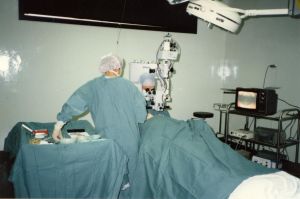Stryker has set aside $133 million in order to defend or settle cases arising from defective hip implant products. Problem products include the Stryker Rejuvenate and the Stryker ABG II. Both products contain metal components, although they are not traditional metal-on-metal hip implant systems. 
Unlike most hip replacement products, which have a metal acetabular cup and a metal femoral head, Stryker products have four parts including a femoral stem, metal neck, ball and cup. This creative design does not make Stryker products any safer than other metal-on-metal devices and Stryker faces accusations that the company is responsible for serious damage that patients experienced after hip replacement procedures. Victims affected by Stryker products can pursue their own claim for compensation and should speak with a defective hip implant lawyer in Massachusetts for legal help.
Stryker Faces Pending Litigation from Metal Hip Implants
Stryker realized that it had problems with its metal hip implant products soon after sales began. While the Rejuvenate and ABG II were approved and sales started in 2008 and 2009, the company was already issuing an Urgent Safety Alert by April of 2012. In July of that same year, both the Rejuvenate and ABG II were recalled. The recall occurred after an expert panel reviewed reports of 50,000 metal-on-metal hip implant patients and found at least 17,000 different adverse reactions.
Stryker’s recall came too late to protect the thousands of patients who had already had an ABG II or a Rejuvenate implanted. The company is responsible to these patients for the complications that they are experiencing due to problems with the metal hip replacement products. These problems can include metallosis, significant pain and discomfort, and problems with mobility. Many patients are forced to undergo a revision surgery due to these and other issues.
Stryker has established a program to reimburse patients for out-of-pocket expenses necessary to get a proper diagnosis of problems with the ABG II and Rejuvenate. Patients may undergo diagnostic testing and Stryker will cover 100 percent of the costs of necessary revision surgery if the patient does not have health insurance coverage. For patients whose health insurer pays for diagnostic testing and treatment, Stryker will cover out-of-pocket expenditures.
The company’s efforts to help diagnose and pay for problems are helpful to consumers but not sufficient to cover their significant losses caused by defective hip implants, including lost wages and pain and suffering. To recover money for these losses as well as to make a claim for punitive damages, patients must take legal action. Many of them have already.
In fact, in January of 2013, a patient experiencing problems with the Rejuvenate Modular Hip system sought to form a class action and become the lead plaintiff in the Southern District of Florida. Multi-county litigation against Stryker is also pending before the New Jersey Supreme Court with at least 145 pending cases; and there were 616 cases consolidated into a Multidistrict litigation in the U.S. District Court in Minnesota as of March 13, 2014.
With so many pending cases, it is unclear whether the $113 million set aside by the company to prepare for litigation will be enough to cover the expenditures that Stryker faces due to its defective products.
Call Jeffrey Glassman Injury Lawyers for a free and confidential appointment — (617) 777-7777.
More Blog Entries:
Report: FDA-Approval Doesn’t Guarantee Drug Safety, Feb. 3, 2014, Boston Product Liability Lawyer Blog
 Product Liability Lawyer Blog
Product Liability Lawyer Blog

